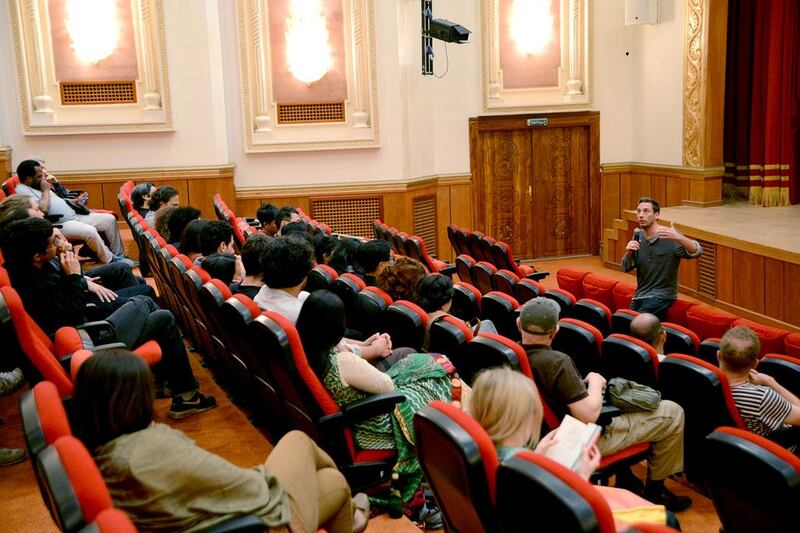The connection between Japan and Palestine, an exploration of the disputed territory of Abkhazia on the Black Sea, and an in-depth discussion about alternatives to nationalism and the state are just some of the topics that will be addressed during the six-day cultural conference beginning in Sharjah on Monday, May 11.
The March Meeting – moved this year to May – are an annual feature of Sharjah Art Foundation’s calendar and provide a platform for cultural and intellectual discussion, as well as a vital networking opportunity for creative people and thinkers who are visiting or live in the Arabian Gulf region.
This year, the event is a continuation of last year’s event, which Sharjah Biennial curator Eungie Joo used to give her direction for the art exhibition that opened in March.
This year’s March Meeting have been devised by artists exhibiting in the Sharjah Biennial. The programme includes panel discussions, keynote addresses, talks and screenings pertaining to the respective artist’s conceptual interests.
Today, Kristine Khouri and Rasha Salti will explore Palestine’s connection to Japan and present an overview of research from the Palestine Liberation Organisation Tokyo office in the 1970s and 1980s, film screenings and conduct a Q&A with Mei Shigenobu, who has mixed Japanese and Palestinian heritage, on the changes in practices around solidarity for Palestine in Japan.
The second and third days are subtitled The Sharjah Sessions and are organised by Eric Baudelaire. Using Abkhazia as an example, the discussion will focus on how state borders have become abstract in Europe and have collapsed in the Middle East. The programme will also feature talks from key thinkers as well as a critical analysis of the pan-Islamic identity from Lala Rukh, a Pakistani artist.
The final days, Friday and Saturday, will take visitors on an excursion to the farthest points of the Sharjah Biennial, The Flying Saucer complex on the outskirts of Sharjah and the abandoned ice factory in the east-coast town of Kalba as well as a tour of the biennial itself. On the closing day, a symposium organised by Ayreen Anastas and Rene Gabri will use the Arab Spring of 2011 as a starting point and discuss how art and cultural spaces have become a way to imagine a new future.
• March Meeting 2015 runs from today until Saturday. Visit www.sharjahart.org
aseaman@thenational.ae





